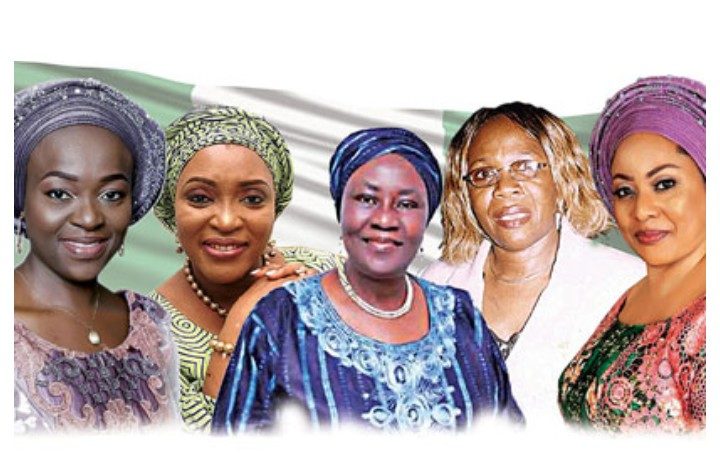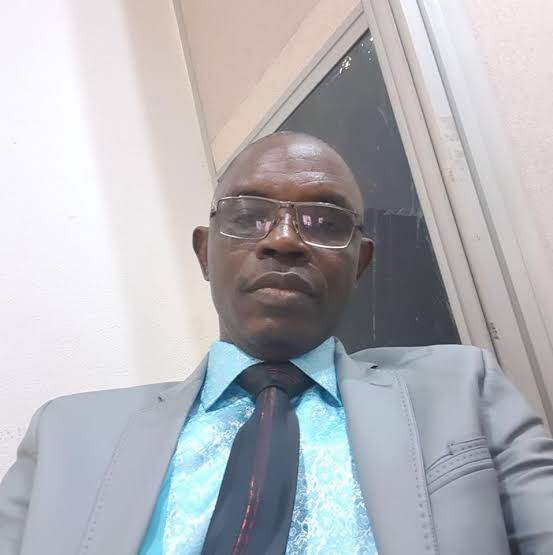The female gender is regarded as the ‘weaker sex,’ yet so much is expected of a woman. Culturally, she is expected to be perfect and do no wrong. In fact, she is expected to be a super human. What a man does and gets away with, a woman will be vilified for doing same. Just how hard or difficult is it being a woman? Assistant Editor, CHINWE MADUAGWU, reports.
Maya Angelou, an American poet and civil rights activist said; “Being a woman is hard work.” She didn’t give her reasons for saying so, but that statement is what a lot of women can empathise with, especially in this clime.
There are so many expectations placed on the woman. In fact, she is expected to be infallible. However, as it is said in local parlance, “one man’s meat is another man’s poison.” The Next Edition talked to some women on what it really means to be a woman.
Ms. Oge Dixon without mincing words says; “Of course, it is difficult to be a woman. As a young girl you are meant to do house chores when your brothers are playing football. In some homes, you may have to give up your education so that the male child will go to school first and sometimes a girl’s education may be completely forgotten. Then you will be asked to go and marry where the family is poor. Of course, the suffering starts with pregnancy, delivery and goes on and on.
“A woman is a sister, a daughter, a wife, a mother, a grandmother and mother in-law. Remember these are all difficult stages in her life. What with raising children! Ha! When the children are stubborn or are not doing very well, the man blames you for not raising your children well. How about the physiological changes that come with being a woman. Most times women are the priests of the home. The men claim they work so hard and cannot pray. How about a woman who is unlucky to marry a philanderer? The list is endless. Only a few women have it a little easier but the usual challenges are still there. So, on the whole, a woman’s life is a difficult one but the grace of God has helped us,” she said.
Mrs. Ngozi Onyejiaka, a Microbiologist, says there are two sides to the story. Yes, she says it’s difficult to be a woman but also points out that a woman enjoys some privileges that a man does not.
Hear her; “ I agree and disagree, all depends on the circumstances one finds herself. A woman’s life is difficult to the extent that she bears the burden of taking care of the children and home alone, she has to work extra hard to put food on the table especially when the spouse is having a hard time, some have to bear physical abuse from spouses.”
She continues; “In-laws expect too much from the woman in terms of care when they visit, she endures torments from same in-laws and others when there is infertility and in some cases, harassment from husbands relatives when the husband dies.”
On the other side of the divide, Mrs. Onyejiaka, points out some benefits enjoyed by women. “Women are seen as home-makers and don’t work so family depends solely on the husband, women enjoy benefits from their children more than the husbands and they don’t have to work long hours since the man is meant to take care of the home,” she says.
Mrs. Rakiya Zubairu, a media consultant, does not see any difficulties in being a woman, rather, she believes that “it is generally difficult to be a human being in this environment. Saying it is difficult to be a woman is a sign of defeat as far as I’m concerned.” She speaks further; “You know what our gender is like , you know what to do. The only thing is that our gender has its peculiarities and it is when we want to assume the functions and responsibilities of the male gender that we begin to encounter what we call difficulties.
READ ALSO: SPECIAL FEATURES: Are women their worst enemies?
“That is not to say there is a shortage of men who want to make life difficult. Once you recognise that your gender has its own function from that of the male gender and you adjust yourself to your responsibilities and to your function, I believe the woman will be fine,” she said.
She, however, acknowledged that indeed women face some peculiar difficulties. “With respect to widowhood rites that women go through, it is certainly very difficult for women in many cultures. The reason why it is like that is because our institutions don’t work as well as they should but fortunately in the East, there’s a land mark ruling that gave women the right to inherit. So that’s an institutional thing.
“Traditionally, I can’t say I’m an expert on the issue but I’m old enough to have friends who are widows and I see what they suffer as widows and I believe they suffer those things simply because of greed. Human greed and the fact that our institutions don’t work. I also know that in other cultures women also suffer to a lighter extent some things that we don’t suffer here. But the issue is that their institutions are stronger than ours so they have their institutions to fall back on. Our institutions are not strong enough. The police look at you like what is she talking about. The courts are full of men and women also who are treating widows badly. These are the reasons I think widowhood is quite hard. But the number one reason is human greed,” Mrs. Zubairu says.
For Ms.Nona Adimora; “Life is difficult whether female or male. Each gender like everything else in life has its positives and negatives. I personally think women have it easier than men, especially in Nigeria.”
Mrs.Ngozi Pipi, a legal practitioner, agrees with the school of thought that being a woman is difficult. “I do think that it is difficult to be a woman in a world where women are expected to be ‘perfect’ and constantly subjected to judgement. A world dominated by men, and women measure themselves and each other by almost unattainable high standards. Men are free to do whatever they please, but women take the blame for anything that goes wrong in the family,” she says.
Ms. Ayo Obe, also a legal practitioner, responds to the issue thus; “the difficulty in answering that question for me is that I’ve never been a man and it is an important point. While one can observe that there are some things, particularly in the public sphere that men have easy, or that things automatically are assigned to men, and all that but they say, ‘what’s behind that six is a lot more than seven.’ You don’t know or may not see what is going on behind, like the pressures that come to a man that do not come to a woman.
“Certainly there are societal and cultural processes that tend to want to keep women down but at the same time when women ignore that and go out to the world at large, they succeed. We have cultural limitations but it is interesting to the extent that when those limitations are challenged, they can be vanished, just like that,” Ms Obe added.
She speaks further; “I’m not saying it happens everywhere. For somebody like me, I have my education, I have my qualifications , it is bound to be different for me, the way I perceive things, than for someone who is not educated.
“But that’s not my background. My mother is from Ijebu land and even though she got married, she is the head of her family because she is the eldest. The same with late Mrs. Awolowo. Though she got married into the Awolowo family, she was the head of her family as the eldest member. So, I’m not coming from the background of ‘women don’t go out or you can’t do it because you’re a woman.’ But in Yoruba land generally, women don’t sit at home ideally drinking tea. Women are expected to go out and work and bring home something.
“We talk about what is culturally expected and I dare say the generation coming after mine would be more able to navigate this territory than those who are brought up with the idea that ‘yes you have to work but you still have to come home and cook and do everything as well.’ Today’s young women would say, ‘for where?’ So, I think it is an area in which we are making progress, rather than going backwards. To that extent I think if it is hard, it would balance out. There are difficulties on both sides.”
Anna Quindlen, an American author and journalist it was who said; “After all those years as a woman hearing’ not thin enough, not pretty enough, not smart enough, not that enough,’ almost overnight, I woke up one morning and thought: I’m enough.”
Perhaps, that would be the key for every woman, give your best to whatever you determine to do, but don’t ‘kill’ yourself trying to please a society that can never be pleased.











